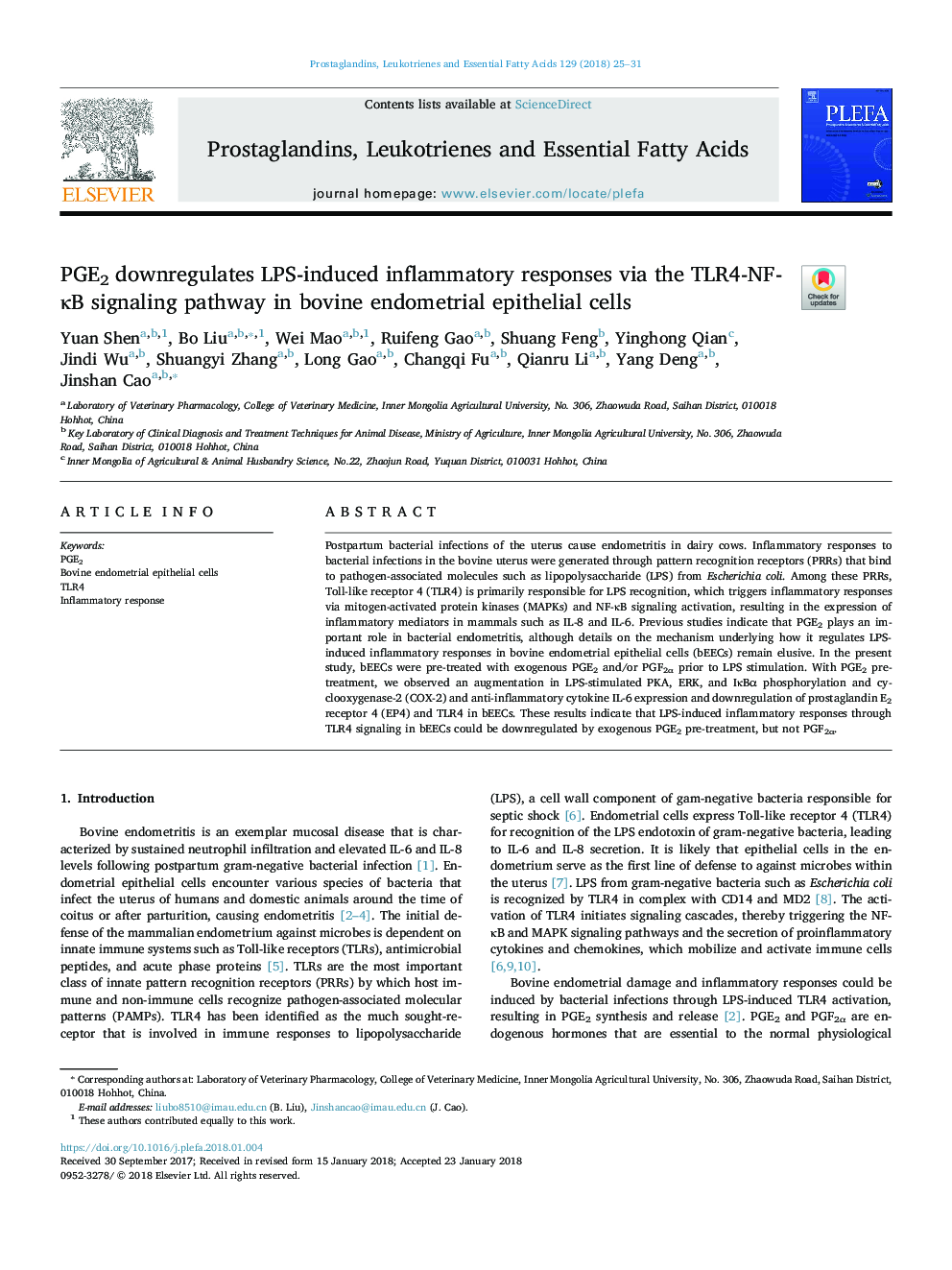| Article ID | Journal | Published Year | Pages | File Type |
|---|---|---|---|---|
| 8624635 | Prostaglandins, Leukotrienes and Essential Fatty Acids (PLEFA) | 2018 | 7 Pages |
Abstract
Postpartum bacterial infections of the uterus cause endometritis in dairy cows. Inflammatory responses to bacterial infections in the bovine uterus were generated through pattern recognition receptors (PRRs) that bind to pathogen-associated molecules such as lipopolysaccharide (LPS) from Escherichia coli. Among these PRRs, Toll-like receptor 4 (TLR4) is primarily responsible for LPS recognition, which triggers inflammatory responses via mitogen-activated protein kinases (MAPKs) and NF-κB signaling activation, resulting in the expression of inflammatory mediators in mammals such as IL-8 and IL-6. Previous studies indicate that PGE2 plays an important role in bacterial endometritis, although details on the mechanism underlying how it regulates LPS-induced inflammatory responses in bovine endometrial epithelial cells (bEECs) remain elusive. In the present study, bEECs were pre-treated with exogenous PGE2 and/or PGF2α prior to LPS stimulation. With PGE2 pre-treatment, we observed an augmentation in LPS-stimulated PKA, ERK, and IκBα phosphorylation and cyclooxygenase-2 (COX-2) and anti-inflammatory cytokine IL-6 expression and downregulation of prostaglandin E2 receptor 4 (EP4) and TLR4 in bEECs. These results indicate that LPS-induced inflammatory responses through TLR4 signaling in bEECs could be downregulated by exogenous PGE2 pre-treatment, but not PGF2α.
Keywords
Related Topics
Life Sciences
Biochemistry, Genetics and Molecular Biology
Clinical Biochemistry
Authors
Yuan Shen, Bo Liu, Wei Mao, Ruifeng Gao, Shuang Feng, Yinghong Qian, Jindi Wu, Shuangyi Zhang, Long Gao, Changqi Fu, Qianru Li, Yang Deng, Jinshan Cao,
